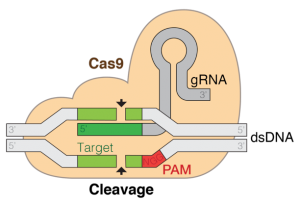There are many benefits to the CRISPR/Cas9 defense system. But, do the pros outweigh the cons?
CRISPR is a molecule that can be programmed to target a specific sequence in a genome. It guides an enzyme, such as Cas9, to chop the code like scissors. There have been many studies and tests done using the defense. The most important advantages of CRISPR/Cas9 over other genome editing systems are its simplicity and efficiency. Since it can be applied directly in the embryo, CRISPR/Cas9 reduces the time required to change certain genes compared to other systems.
However, many attempts to use this mechanism have failed. Using the mechanism is not as easy as it sounds. A Cas9 repair is not always precise. On ZMEScience, one HIV patient tried the process. But, the HIV cells were only made stronger. Researchers equipped T-cells to hurt the virus with the enzyme Cas9. T cells are a type of lymphocyte that play a central role in cell-mediated immunity. T cells equipped with Cas9 were seen to successfully hurt the HIV genome, and make it unable to properly reproduce. This project led by Chen Liang from McGill University in Montreal, Canada seemed to work fine. But, the team noticed that two weeks later T cells were producing copies of virus particles that had escaped the CRISPR attack. The area around Cas9 only developed more mutations, aka it made the HIV stronger. It is also impossible to direct the Cas9 exactly where one wants it to go. So in essence, it is a risky gamble.
Although there are hopes for this technique to be more refined and successful in the future, for now, its uses are limited.
For more information click here.



Leave a Reply